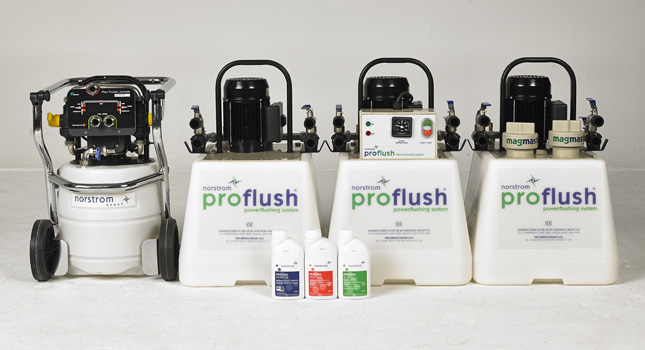

Daniel Norstrom looks at the importance of water treatment when installing a new boilers, as it relates to Part L of the Building Regulations and BS 7593: 2006.
Before we start rolling our eyes at the never-ending list of rules and regulations that exist within the plumbing and heating sector, let’s get a little perspective.
Most regulations make sense.
If I were a consumer having a new boiler installed, I’d want to be sure that it was going to work efficiently. If I were a boiler manufacturer offering a warranty, I’d want to be sure that my warranty excluded pre-existing system issues. That’s just common sense.
Ensuring a system is ready for a new boiler makes sense all round and that’s where power-flushing and effective water treatment come in. Removing the debris and sludge that has accumulated in radiators and pipework allows everything to work more efficiently. More than that, adding safe, effective treatment agents to the water can prevent further damage. It can safeguard against corrosion and inhibit the build-up of scale throughout the whole system, including the boiler itself.
So, we know it’s in the regulations and we know it makes sense, but what’s in it for the trade – for plumbers and heating engineers? Don’t think of it as an extra task and but as an extra source of income.
As householders look for ways to save money on their fuel bills – including updating their boilers – power-flushing is becoming more and more popular. Once you’ve got the equipment, it’s simple. It’s not a filthy job or one that takes days to complete.
Power-flushing might be a diversion from the work you normally do, but you’ve got the skills and the know-how to make a go of it, and when you’ve got the skills, it’s common sense to make a good living from them.
Daniel Norstrom is managing director of Proflush
If you'd like to keep up-to-date with the latest developments in the heating and plumbing industry, why not subscribe to our weekly newsletters? Just click the button below and you can ensure all the latest industry news and new product information lands in your inbox every week.